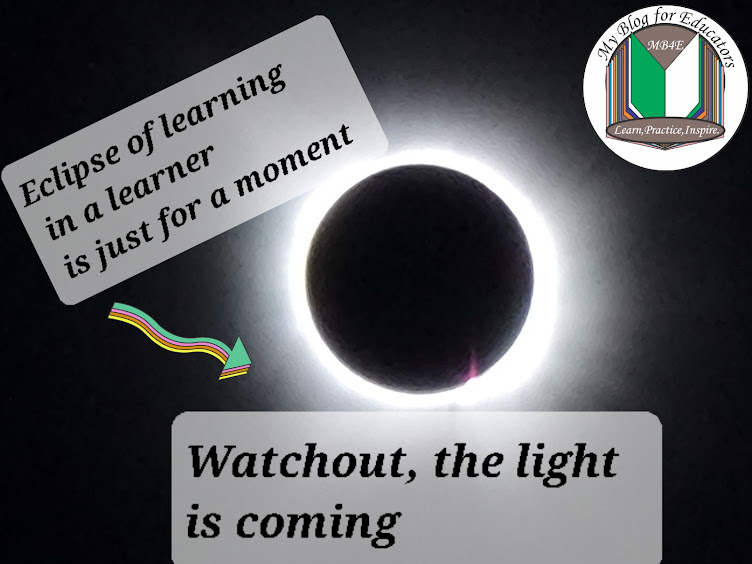The knowledge of Assessment For Learning (AFL) informed us that learners are to be involved in the learning process. If they are to be involved in the learning process, then self/peer assessment is in order. Allowing the opportunity for Self/peer assessment is a challenge for most teachers. This may be due to some factors; poor class control, the inability of some teachers to relinquish learning powers to the learners’ belief system that only teachers can assess learners' work and lack of trust on the part of teachers.
Now, what is self-assessment?
As the name implies, self - assessment in general terms is the ability to
evaluate oneself, actions attitudes, or performance (dictionary meaning).
That means
something should be evaluated or examined. There is work to be done.
In Education, Self-assessment
is the assessment by which a learner gathers information about and reflects on
his or her own learning, judges the degree to which it reflects explicitly
stated goals or criteria, identifies strengths and weaknesses, and revises
accordingly. It is the learner’s own assessment of personal progress in
knowledge, skills, processes, and attitudes. Unesco ( adapted from Ontario Ministry of Education).
Self-assessment
stems from the confidence of learners as they are allowed the opportunity to
take responsibility for their learning. When students are allowed to lead
learning, their self-esteem rises. As they build up their confidence, they can
be able to evaluate their actions and performances with a high level of sincerity,
openness, and integrity. With the criteria provided, learners evaluate their
performances. There is always a discernment on how to improve. Peer assessment
is beyond learners marking each other's work; the feedback they share as they
critically evaluate each other’s work has benefits for the giver and the
receiver.
With self-assessment,
learners become the judge of their own work
Peer assessment
on the other hand is the assessment of a student’s work by another learner. There
is always qualitative feedback on a learner's performance by another learner.
Involving learners in assessment is crucial because, by practice, learners
learn to critically evaluate their performances and that of their peers. Though
both assessments are sometimes criticized especially in the areas of tampering
with scores if the assessment is based on grading, their authenticity cannot be overruled.
Peer assessment /Self-assessment is beyond
learners marking their own work or each other’s work; the feedback they share
as they critically evaluate their work has a
significant impact on the giver and the receiver. The bottom line is
that learners help each other improve their work. which helps them understand
what good work is all about.
Self- Assessment and the benefits
Thinking about using Self-assessment? Click here👉 Self-Assessment-Center for Teaching Innovation-Cornell University to learn more.
Peer Assessment
and the benefits
Thinking
about using Peer assessment? Click here👉
Peer-Assessment-Center for Teaching Innovation-Cornell University to learn more.
Additional resource
Using Student-to-Student Peer Assessment-IOWA State University
Using Student-to-Student Peer
Assess Using Student-to-Student Peer Assessment
ment
Us Using Student-to-Student Peer
Assessment
ing Student-to-Student Peer
Assessment







No comments:
Post a Comment